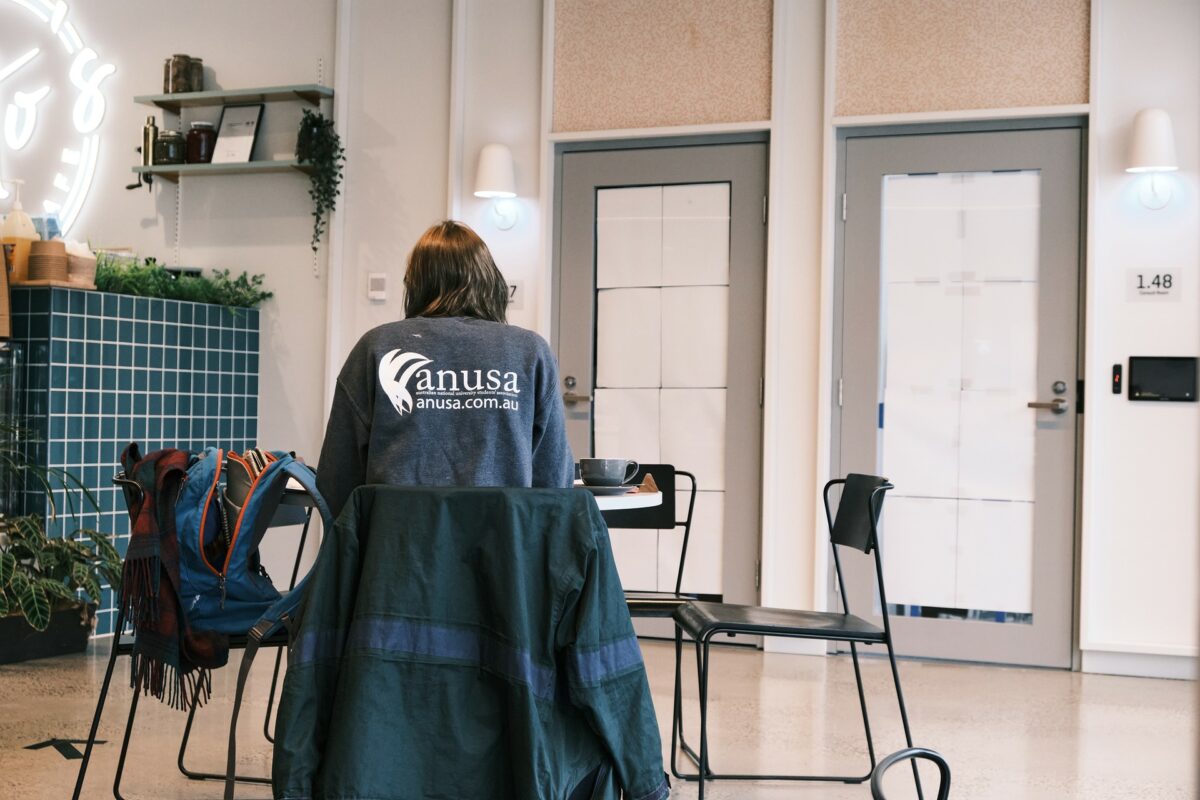ANUSA delegates met in Chifley on Wednesday, 21 September, to discuss ANUSA’s financial woes, NUS accreditation, officer updates and other issues at the sixth Student Representative Council (SRC) meeting of 2022.
Riley Curtain, Financial Review Committee (FRC) chair, shined a spotlight on ANUSA’s current financial position in a stern draft report. The Financial Review Committee is composed of undergraduate students who do not serve as ANUSA representatives, tasked with providing a “nuanced, independent assessment of ANUSA’s financial position.”
With a projected budget deficit of $402,000, the report outlines actions ANUSA may need to take to avoid the “plausible” prospect of insolvency or serious legal ramifications. The report did say that the threat of insolvency was not immediate.
With the five-year-long stagnation of SSAF funding from the university thinning the contents of the ANUSA wallet, the FRC identified serious concern in the sustainability of ANUSA’s expenditure – on staff wages and particularly Student Assistant Grants:
“ANUSA is not a charitable organisation, and whilst it seeks to best service the undergraduate body and the wider community, it cannot fill the role of a government agency, or even ANU, in financially supporting all students”,
The FRC advised that ANUSA should have serious restraint and reduce spending. The Treasurer proposes the budget, typically with executive support, at an Ordinary General Meeting in which all undergraduates can vote.
The report argued that ANUSA’s financial management lacks policy and safeguards concerning reserve and rollover funds, a future financial strategy, and a system to prioritise essential services in an overly committed budget.
Controversially, the report suggests an ANUSA investment portfolio could rectify the loss of rollover funds.
Coming from a student organisation, and in the wake of PARSA’s defunding (which began with accusations of financial mismanagement), the FRC’s report is a strong critique of ANUSA’s current finances.
As argued in the debate, it is the ANU which ultimately decides how much money ANUSA receives. Currently, the University allocates approximately 30 percent of the SSAF fund to ANUSA, and about three percent to Woroni and one percent to Observer. Undergraduates compose around half of all students at the ANU and the FRC’s report demonstrates that students are struggling now more than ever with the cost of living. Moreover, ANU’s introduction of a reserve pool from the Student Services and Amenities Fee (SSAF) fund has further reduced the money available to ANUSA so far this year. The ANU will distribute this reserve pool later in the year, preventing exact forecasting. ANUSA has attempted to help an increasingly struggling student body, while the ANU’s new SSAF system limits the funds available to do so. In the debate, students proposed, as a clear remedy regarding the ANU’s allocations, more money.
Woroni understands that ANUSA plans to rectify the deficit using funding from the SSAF reserve pool. The exact amount is unclear, but, based off past experience, ANUSA President Christian Flynn believes ANUSA could receive around $160,000. ANUSA has also bid for an amount that would cover the entire deficit.
Current ANUSA Treasurer Jaya Ryan broadly agreed with the report, and confirmed that expenditure has increased this year. Ryan also argued that relying on receiving more SSAF funding is not a “silver bullet” and that ANUSA cannot continue “…what we’ve been doing this year.”
Christian Flynn, in responding to the report, emphasised that “…this is a major year of transition” because ANUSA has expanded services to postgraduates. Flynn argued that, within the next twelve months, there is time to rectify the structural issues that the report highlights and that “…we do have a plan.”
The SRC passed the motion to accept the report.
BIPOC Officer Chanel Nguyen successfully gained ANUSA’s support for the 10 October Day of Action, censuring ANU for their failure to respond to all but one of the recommendations from the 2021 Racism Report. ANUSA passed the motion in solidarity with the BIPOC Department, additionally recognising systemic campus racism and the university’s inaction on BIPOC issues.
After significant debate, a majority voted to accredit to the NUS (National Union of Students) for the reduced fee of $10,000. Socialist Alternative (SAlt) representatives insisted that $40,000 was a more appropriate contribution if ANUSA was to meaningfully support or expect effective action from the union.
Financial stress reared its head again, with President Christian Flynn emphasising the importance of being “realistic” with regards to ANUSA’s financial capacity. Concerns about alleged NUS financial mismanagement won out over the prospect of paying “full union dues” at this time.
Further successful motions with limited material actions included an expression of opposition to further outsourcing of the ANU Medical Centre – with a Facebook promotion of the Education Activism Network’s petition on the matter, as well as a denunciation of the late Queen Elizabeth II for her colonial ties.
The approved statement, moved by SAlt’s Wren Somerville, condemns the mourning of “a royal parasite who contributed nothing positive to the Commonwealth in her 96 years of leeching off the British public.”
This was a solidarity motion, meaning it is an expression of an opinion with limited material action. Following a friendly, uncontested, amendment from Indigenous Officer Katchmirr Russell, the political motion opposed the British monarchy generally, and changed the title of the motion.
The motion follows accusations of bullying and harassment from ANU students on several online platforms when forums did not allow SAlt to make posts that allegedly exploited the Queen’s death.
The next SRC meeting will be held on October 12th in Chifley’s Graneek Room and is open to all undergraduate ANU students. Run, don’t walk, the room seats about thirty.
Disclosure: Woroni is a recipient of SSAF funding.
We acknowledge the Ngunnawal and Ngambri people, who are the Traditional Custodians of the land on which Woroni, Woroni Radio and Woroni TV are created, edited, published, printed and distributed. We pay our respects to Elders past and present. We acknowledge that the name Woroni was taken from the Wadi Wadi Nation without permission, and we are striving to do better for future reconciliation.
